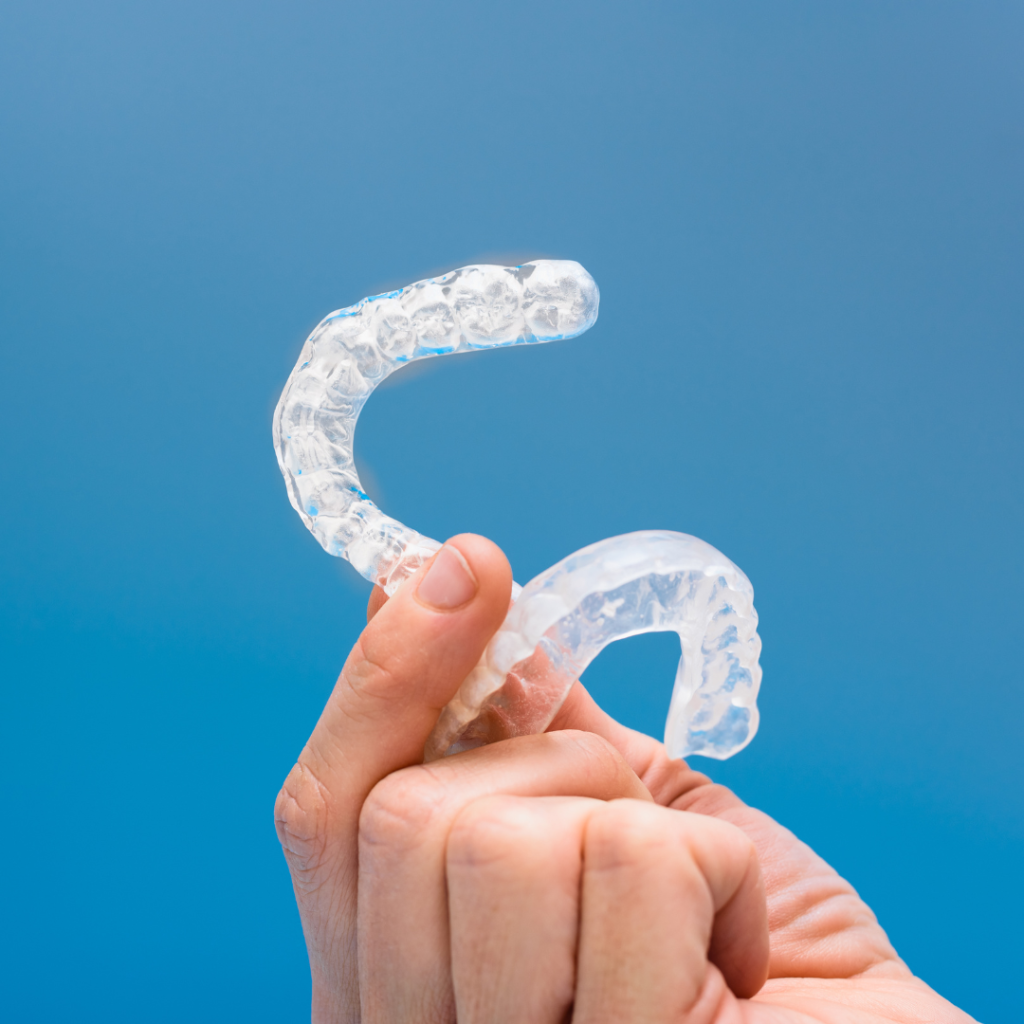Night guards, also known as occlusal guards or bite splints, are dental appliances designed to protect your teeth and jaws from the harmful effects of teeth grinding or clenching, also known as bruxism. Bruxism can occur during sleep and can lead to a range of dental problems. Night guards provide a cushioning barrier between your upper and lower teeth, preventing excessive wear and damage.
What is Bruxism?
Bruxism is the involuntary grinding, clenching, or gnashing of teeth, often occurring during sleep. It can result from various factors, such as stress, misaligned teeth, or sleep disorders. Bruxism puts excessive pressure on the teeth, jaw joints, and surrounding muscles, leading to a variety of symptoms and dental problems.
Benefits of Night Guards
-
Protection against Tooth Wear: Night guards act as a protective barrier between your upper and lower teeth, preventing them from grinding against each other. This helps to minimize the wear and tear caused by bruxism, preserving the integrity of your natural teeth.
-
Relief from Jaw Pain and Tension: Bruxism can lead to jaw pain, headaches, and facial muscle tension. Night guards help to alleviate these symptoms by reducing the strain on the jaw joints (temporomandibular joints) and relaxing the facial muscles.
-
Prevention of Tooth Damage: Bruxism can result in chipped, cracked, or fractured teeth. Night guards absorb the forces generated during teeth grinding, distributing the pressure more evenly and reducing the risk of tooth damage.
-
Alleviation of Tooth Sensitivity: Teeth grinding can wear down the enamel, leading to increased tooth sensitivity to hot, cold, or sweet stimuli. Night guards provide a protective layer that can help alleviate tooth sensitivity.
-
Preservation of Dental Work: If you have dental restorations, such as crowns, bridges, or veneers, night guards can help protect them from the excessive forces of bruxism, prolonging their lifespan and reducing the need for repairs or replacements.
Getting a Night Guard

-
Consultation and Examination: If you suspect that you grind or clench your teeth during sleep, schedule an appointment with our dentist. They will evaluate your teeth and jaws, ask about your symptoms, and determine if a night guard is necessary.
-
Custom Night Guard: If a night guard is recommended, our dentists will take impressions of your teeth to create a custom-fit night guard. This ensures optimal comfort and effectiveness.
-
Fitting and Adjustment: Once your custom night guard is ready, our dentist will ensure that it fits properly and make any necessary adjustments to achieve a comfortable bite and proper alignment.
-
Instructions for Use and Care: Our qualified dentists will provide you with instructions on how to wear and care for your night guard. It’s important to follow these guidelines to maintain the hygiene and longevity of the appliance.
Night guards are essential dental appliances that protect your teeth, jaws, and dental restorations from the damaging effects of bruxism. By wearing a night guard during sleep, you can alleviate symptoms, prevent tooth wear, and preserve your oral health. If you suspect that you grind or clench your teeth, consult your dentist to determine if a night guard is right for you. Remember, a custom-fit night guard tailored to your specific needs will provide the best protection and comfort. Prioritize your oral health and take the necessary steps to protect your smile with a night guard.
In addition to traditional nightguards and bruxing appliances like the Comfort Hard/Soft, we are pleased to provide the NTI/TSS clenching/bruxing suppression system. It is the only system FDA approved for the treatment of migraine headaches in addition to helping reduce and eliminate facial pain.


